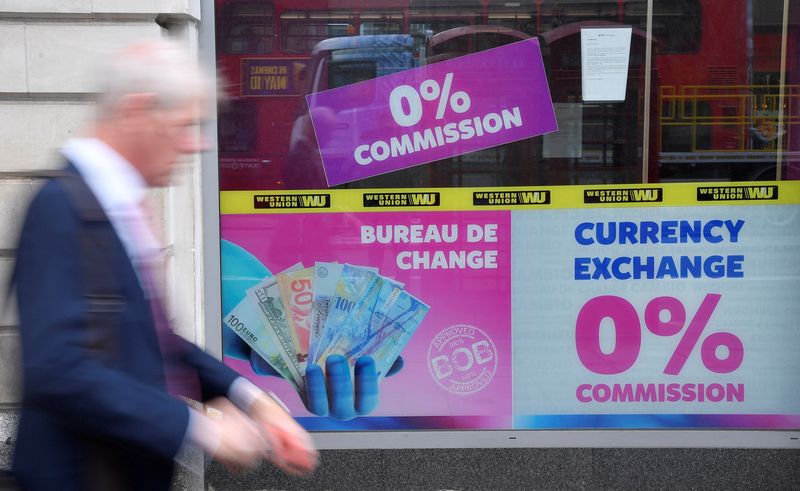LONDON (Reuters) - The British pound climbed to more than one-week highs on Wednesday after data showed UK inflation data zipped to a decade high, hardening expectations of a rate hike as early as February.
While markets on Wednesday were assigning more than a 60% probability of a 15 bps interest rate increase, up from 50% on Tuesday, the emergence of the Omicron variant of the coronavirus may force policymakers to hold off from tightening policy.
Against the broadly struggling dollar, the British pound climbed 0.4% to $1.3282, its highest level since Dec. 7. Against the euro it edged 0.2% higher to 84.94 pence.
Data released on Wednesday showed British consumer price inflation had surged to its highest in more than 10 years in November, jumping to 5.1% from October's 4.2%, exceeding all forecasts in a Reuters poll of economists, which had pointed to a rise of 4.7%.
The data came a day after the International Monetary Fund urged the Bank of England to avoid an "inaction bias" when it came to raising interest rates.
"These numbers, along with the IMF’s warning yesterday, clearly strengthen the case for a rate rise tomorrow," said Rupert Thompson, chief investment officer at Kingswood, a money manager.
"Even so, the uncertainties thrown up by Omicron mean on balance the MPC still looks likely to hold off raising rates until February."

Money markets are now pricing in a cumulative 22 bps of rate hikes by February compared to less than 20 bps on Tuesday.
UK inflation https://fingfx.thomsonreuters.com/gfx/mkt/jnpwearlrpw/UK%20inflation.JPG